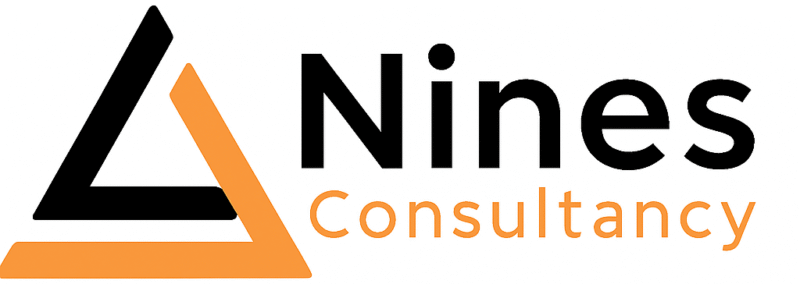Get HACCP Certification
Hazard Analysis and Critical Control Points
HACCP Certification Overview
The UAE is one of the most dynamic food markets in the world. Whether your business operates in Dubai, Abu Dhabi, Sharjah, Ajman, Ras Al Khaimah, Fujairah, or Umm Al Quwain, compliance with food safety regulations is essential.
HACCP certification (Hazard Analysis and Critical Control Points) is the globally recognized food safety system that ensures hazards are identified, monitored, and controlled. In the UAE, HACCP certification is not just recommended, it is a mandatory requirement set by authorities such as Dubai Municipality, Abu Dhabi Agriculture and Food Safety Authority (ADAFSA), and other emirate-level food control departments.
What is HACCP Certification?
HACCP certification in UAE is a formal approval that your business follows an internationally accepted Hazard Analysis and Critical Control Points system.
The certification shows that your business is:
- Conducting hazard analysis and food safety risk assessments.
- Identifying Critical Control Points (CCPs) to reduce or eliminate risks.
- Implementing monitoring, verification, and corrective actions.
- Maintaining detailed records of compliance.
HACCP applies across the food sector in every emirate:
- Restaurants and catering companies in Dubai, Abu Dhabi and Sharjah.
- Hotels and central kitchens in Ajman and Fujairah.
- Food factories and packaging plants in Ras Al Khaimah.
- Warehousing and logistics hubs in Umm Al Quwain.
This certification is also the foundation for higher-level standards such as ISO 22000 Food Safety Management System and FSSC 22000 certification.
Why HACCP Certification Matters in the UAE
Food safety laws in the UAE are strictly monitored across all emirates. For example:
- Dubai Municipality Food Safety Department requires HACCP certification for restaurants, hotels and catering services.
- ADAFSA in Abu Dhabi ensures strict compliance for food manufacturers and distributors.
- Sharjah Municipality mandates HACCP for central kitchens, warehouses and retail outlets.
- Ajman, Ras Al Khaimah, Fujairah and Umm Al Quwain municipalities also enforce HACCP standards for food outlets, hotels and factories.
Not having HACCP certification can result in fines, suspension of trade licenses, or loss of contracts. On the other hand, having HACCP means:
- Full compliance with UAE food regulations.
- Eligibility for contracts with airlines, hotels and supermarkets.
- Increased consumer confidence.
- Stronger reputation in local and international markets.
Benefits of HACCP Certification
Choosing HACCP certification in the UAE gives your business:
- Compliance with food safety laws in Dubai, Abu Dhabi, Sharjah, Ajman, RAK, Fujairah and UAQ.
- A stronger brand image that builds customer and supplier trust.
- Reduced risks of contamination and foodborne illnesses.
- Improved operational efficiency and cost-effectiveness.
- Access to contracts and tenders that require HACCP certification.
- A smooth transition to advanced standards like ISO 22000 or FSSC 22000.
HACCP Certification Process in the UAE
The certification process is structured but tailored for each emirate.
At Nines Consultancy, we support businesses step by step:
- Gap Analysis: Review current food safety practices across your site.
- HACCP Plan Development: Identify hazards and critical control points, then create monitoring systems.
- Documentation: Prepare HACCP manuals, flowcharts, SOPs and record templates.
- Staff Training: Conduct HACCP awareness and advanced training sessions online or onsite.
- Implementation: Apply the HACCP plan to everyday operations.
- Internal Audit: Perform a mock audit and address gaps before external review.
- Certification Audit: An accredited body performs the official audit.
- Certification: Once successful, your HACCP certificate is issued for 3 years with annual surveillance audits.
HACCP Requirements
To apply for HACCP certification in Dubai, Abu Dhabi, Sharjah or other emirates, you will generally need:
- A valid UAE trade license.
- A food safety policy and defined objectives.
- HACCP plan with hazard analysis and CCP identification.
- Layout or floor plan of the facility.
- Supplier and raw material specifications.
- Training records of staff (basic and advanced HACCP training).
- Cleaning, calibration and monitoring records.
- Internal audit and corrective action reports.
FAQs
Conclusion
No matter which emirate you operate in, HACCP certification in UAE is the foundation of food safety compliance and customer trust. It keeps your business legally compliant, reduces risks, and gives you access to bigger contracts and growth opportunities.
Contact Nines Consultancy today to begin your HACCP certification journey in Dubai, Abu Dhabi, Sharjah, Ajman, Ras Al Khaimah, Fujairah or Umm Al Quwain.
Top Certifications
Let’s Make Things Happen
Start your journey with a trusted partner in company formation, liquidation, ISO certification, and Golden Visa services in the UAE. Our experts guide you every step of the way from business setup to full compliance.
Nines Consultancy handled my entire Freezone company formation with such clarity and efficiency. Their team truly understands the UAE business landscape.
Ahmad Zafar
Entrepreneur & Golden Visa Holder

